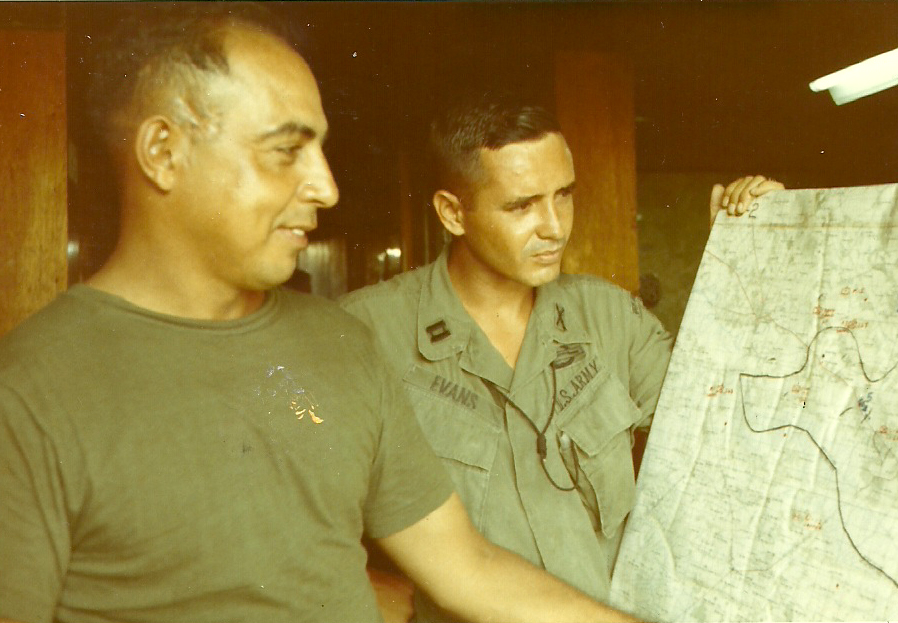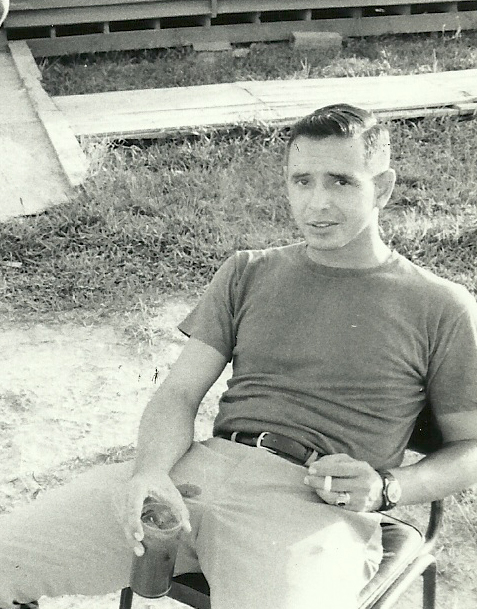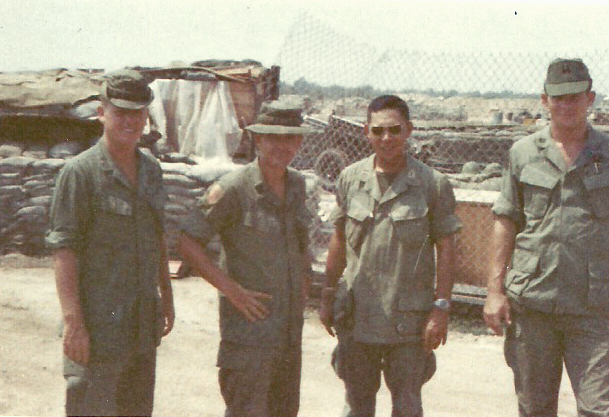Wolfhound Company Commanders III: Captain Paul Evans
by Howard Landon McAllister
By 1969, Wolfhounds in the Vietnam War were running low on talent for prospective company commanders. The pre-war commanders at company level had disappeared. They were replaced by a mixture of young regular Army officers and a mixed bag of ROTC-commissioned officers. These officers adapted as quickly as they could, but combat is not good environment to learn basic troop-leading principles. Environmental hazards lead to shortcuts, and shortcuts in combat get soldiers killed. In Vietnam the turnover rate was disturbing to battalion and division commanders, but as always, they had to work with resources at hand.
The single bright spot was in commanders who were commissioned from the prewar ranks. Among the finest of them in the Second Wolfhounds was Captain Paul Evans, who commanded Company D in late 1969 and early 1970. Later, he served as a superlative intelligence officer in the battalion. If a single word had to be selected to describe him, it would be reliable.

Paul Evans was from West Virginia. He had served in the First Infantry Division in combat as a sergeant, and he brought measure of stability to the company that got soldiers home alive. Many of these men may be unaware that they owe him their existence, as well as generations unborn.
In manner, Evans was quiet and methodical. Like all capable combat commanders, he was not rattled by being under fire, and he was usually able to project it to the men around him. Of his own formula for success in combat, he told me something I thought was important enough to write down in a pocket notebook in 1970: “I try to stay to stay a few steps ahead of things before I issue orders for the platoons to move,” he said. “I believe it saves lives in combat,“ he added.
The formula served him well, and it kept him from getting bogged down in doing the jobs of the platoon leaders. In this way, he avoided the most common flaw in infantry company commanders. He knew that clear and brief orders work best. His experience as a sergeant had also given him a realistic view of how much time it should take to execute orders in combat. He could balance time requirements better than any other company commander in the battalion at the time.
He served in the Wolfhounds at a time when the character of the war was rapidly changing.

The word was already out that the war effort would be turned over to the Vietnamese. While U.S. units would still be active in combat, joint operations would be conducted, and finally the American units would be withdrawn, one by one. It was a slipshod process—the so-called Vietnamization-- that satisfied no one, especially the Americans. No soldier wanted to be the last to die while we fought.
David R. Shepherd, who was a capable young sergeant in combat in Company D in 1970, remembers Evans well: “In a formation or under fire, every order by Paul Evans was given in a very crisp, confident manner. His men felt this confidence.”
Shepherd remembers one incident in early 1970 with amazement. “Delta was scheduled for stand-down and we were waiting for trucks to pick us up. In a recent stand-down incident another company had used tear gas grenades in a prank on soldiers in the rear area. On the radio, the battalion commander told Captain Evans that he didn’t want anything like that to happen while we were in Cu Chi.“
Evans responded: “Sir, this is Delta Company--Out.”
David Shepherd also recalls that while Evans was serving on the battalion staff as intelligence officer, he was sent back to Company D to command the unit for a couple of weeks while the company awaited a permanent replacement for a commander who had been “fired.”
“When he got off the chopper, all of the troops stood and began cheering,” said one of Shepherd’s friends, who was present in the unit that day.
As battalion intelligence officer, Evans’s painstaking attention to his duties helped minimize casualties at a time when the battalion’s area of operations was larger than at any other time in the war. With his sergeant, Master Sergeant Luna, he carefully collected information about our enemy that saved lives among our men time after time in 1970, at a time when our resources were thinly stretched by the size of the operations area.

Left to right, Jay Yurchuck, Paul Evans, Tom Hyun, and Charles Criswell
Many officers in the Second Wolfhounds who commanded companies were later good staff officers in the battalion, but no one did it better than Paul Evans.
Copyright 2011 by Howard Landon McAllister
